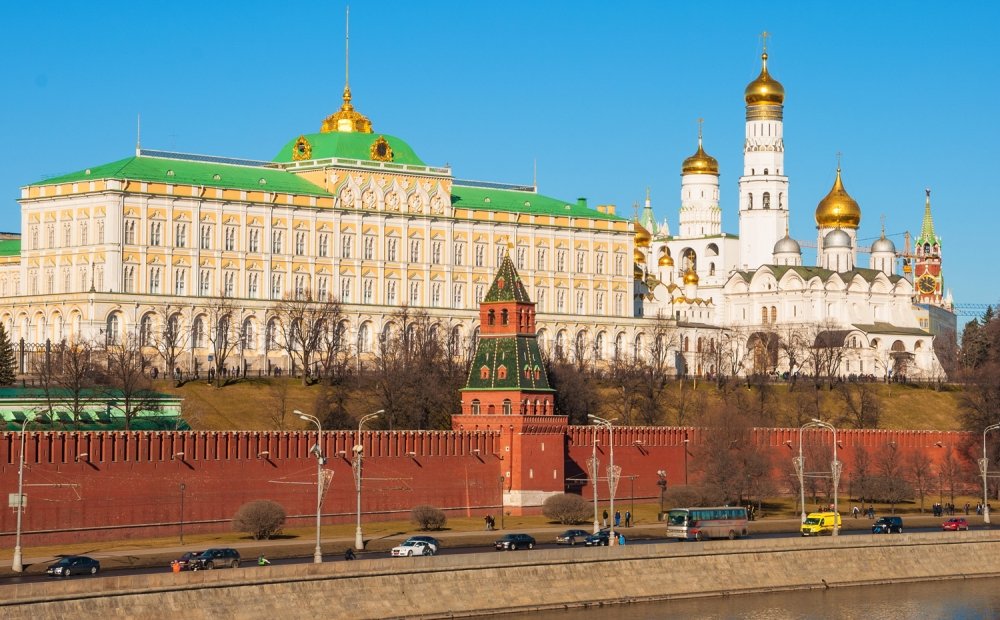Ground Truth Briefing: What Does Russia Expect of President-elect Donald Trump?

The Takeaways
President-elect Donald Trump has promised to shift U.S. foreign policy priorities and to reshape America’s system of alliances. What might this new stance mean for Russia and for Mr. Trump's relationship with President Vladimir Putin? On December 8th, 2016 the Wilson Center’s Matthew Rojansky, Director of the Kennan Institute, moderated a discussion on how the election of Donald Trump will affect U.S. – Russia relations. Rojansky was joined by Andrei Kozyrev, former Foreign Minister of the Russian Federation and Distinguished Fellow with the Kennan Institute, Maxim Trudolyubov, Senior Fellow at the Kennan Institute, as well as Victoria Zhuravleva, Professor, American History and International Relations at Russian State University for the Humanities.
Matthew Rojansky began the discussion by noting that the recent presidential campaign in the United States has been followed very closely in Russia. He noted, “What we have seen on the campaign trail from Trump has had a lot of resonance in Russia. Ukraine, Crimea, NATO, and even economic sanctions, President-elect Trump’s perspective on these questions were different than current U.S. policy.” He emphasized that while many Russians expect change and are hopeful on improving relations with the incoming Trump administration, many within the Republican Party have taken a more hardline approach to Russia on issues such as sanctions and the war in Syria. Rojansky stressed that the primary focus of this discussion would be on the environment in which policy will be made and implemented between Russia and the United States.
Andrei Kozyrev highlighted that, at this early stage, it is very difficult to pass judgement on where the relationship is headed and any expectations are premature. Focusing on impressions from Russian media, he noted that there has been a lot of early celebration from members of the Russian Duma and government officials. Kozyrev observed that in President Putin’s recent address to the country’s Federal Assembly, the Russian president was careful to strike a much more moderate tone. According to Kozyrev, “the perceived unpredictability of the President-elect might remind some in the Kremlin of the situation under Ronald Reagan, who was also considered unpredictable.” Kozyrev also drew attention to the possibility that Donald Trump’s election may have unexpected consequences for U.S.-Russia relations and that, traditionally, it was the Republican Party in the U.S. which “took a harder line” in dealing with Moscow.
Victoria Zhuravleva underscored the optimism which many Russians felt after the election of President-elect Trump, hoping this would serve as a catalyst for improved U.S.-Russia relations. The belief that Trump will take a more “isolationist” stance in U.S. foreign policy and that the United States will focus more on shared national interests rather than shared values was also a factor. She noted that a recent survey in Russia found 46% of the population wants to improve relations with the United States.
Zhuravleva underscored that there has been an “oversimplification” of the U.S. presidential election by Russian media. She emphasized that Russian politicians and media created a false image of Hillary Clinton as highly hypocritical and aggressive while creating an overly romantic image of Donald Trump. Zhuravleva underscored the tendency of these actors to also view U.S politics only through the prism of the relationship with Moscow. Zhuravleva expressed that in her view, “with the election of Donald Trump we should hope relations become more pragmatic, but I don’t see many areas for serious improvement.”
Maxim Trudolyubov emphasized that it’s very hard to say what the Kremlin is expecting from the Trump victory but commentators in Russia media have created a long list of expectations for the incoming U.S. administration. The immediate lifting of economic sanctions against Russia, reaching an accord on the war in Syria, and the ending of U.S. persecution of WikiLeaks founder Julian Assange were included. Trudolyubov also stressed that very few officials in the Russian government or in the media actually expected a Trump victory. The feeling was a Clinton win was very likely and state owned media, such as RT, were gearing up for an anti-American democracy campaign after the election results. This has since been upended by the election results.
Trudolyubov concluded by noting that there is now a realization by the Russian government that the Trump victory would not be as straightforward a “win” for Putin and Russia as previously believed. He pointed out, “there is a strong sense of entitlement currently among the Russian establishment. They basically think the United States of Donald Trump owes Russia a lot because of Russian support in the campaign.” There will be a lot of bargaining by both parties, according to Trudolyubov, but it’s not clear what Russia can offer the United States at the bargaining table to change course.
Speakers

Former Foreign Minister of Russia, 1991-1996

Editor-at-Large, Meduza


President and CEO, US Russia Foundation
Hosted By

Kennan Institute
After more than 50 years as a vital part of the Wilson Center legacy, the Kennan Institute has become an independent think tank. You can find the current website for the Kennan Institute at kennaninstitute.org. Please look for future announcements about partnership activities between the Wilson Center and the Kennan Institute at Wilson Center Press Room. The Wilson Center is proud of its historic connection to the Kennan Institute and looks forward to supporting its activities as an independent center of knowledge. The Kennan Institute is committed to improving American understanding of Russia, Ukraine, Central Asia, the South Caucasus, and the surrounding region through research and exchange. Read more
